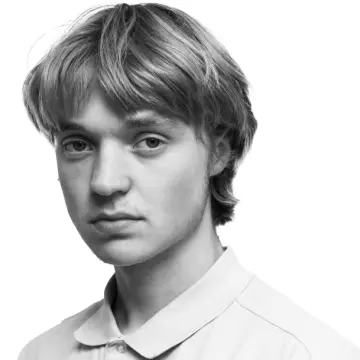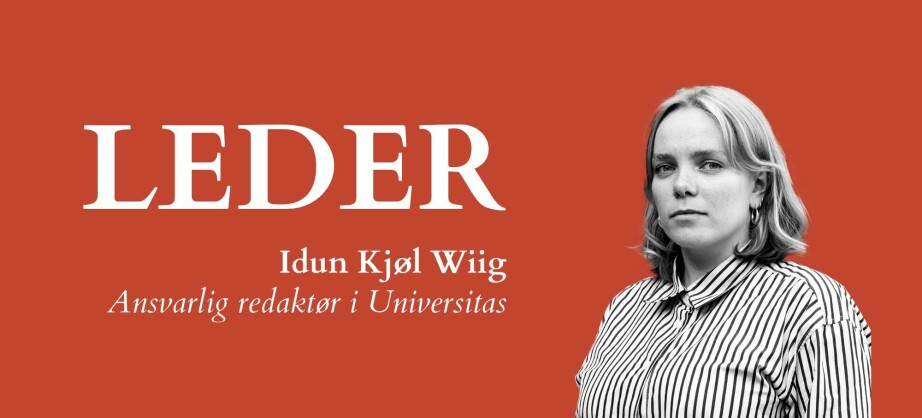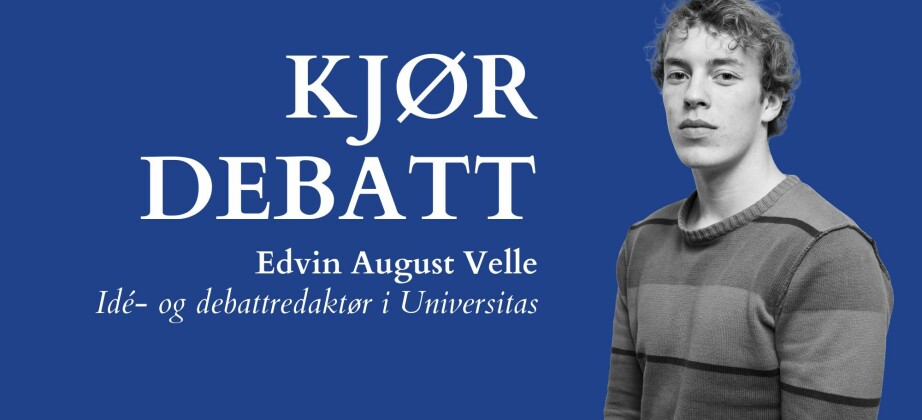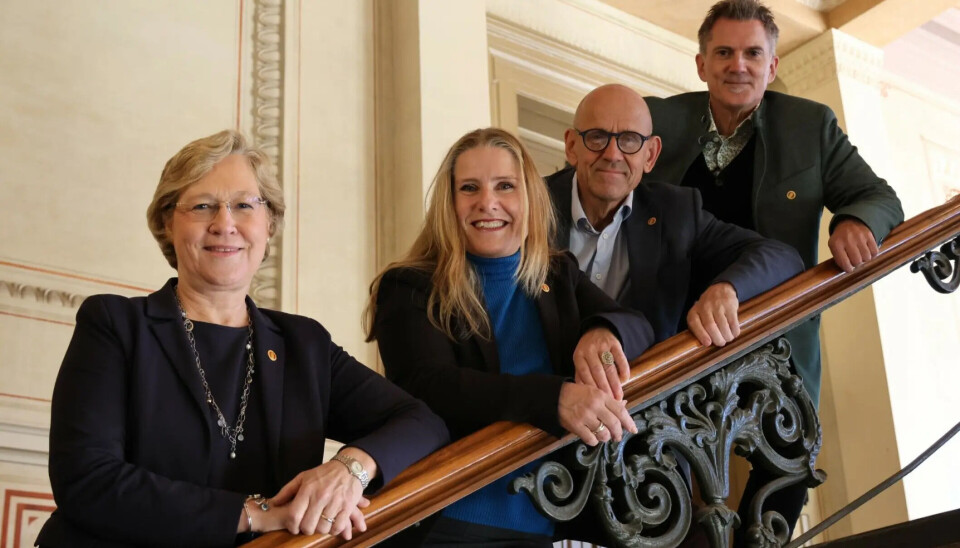
A new university administration is chosen:
Who will be the next head of UiO?
This is a translation of the Norwegian article written by Mads Bauer-Hartmark, with photographs by Kenneth Novela Gran (published in Universitas on October 29, 2024).
The new university administration is soon to be chosen, set to start in the coming spring. Last week saw the dean of law Ragnhild Hennum and dean of medicine Hanne Flinstad Harbo’s entrance to the race for the podium.
The election race for UiO’s next principal is just around the corner. For the first time since 2017 the elections will feature more than one candidate. Both staff and students can vote, although staff votes carry a somewhat privileged weighing over the student votes (see the fact box). In 2017 ten percent of students made their way to the urns.
— Ten percent is better than zero, says Dag Michalsen, leader of this year’s election committee.
— Would you say that the student vote carries a real impact?
— Yes, such an impact is possible, Michaelsen says, referring to recent elections for a faculty head at the Faculties of Dentistry and Medicine, where he says the student vote held sway over the result.
Universitas visits the candidates to better get to know them. First up is Hanne Flinstad Harbo, dean at the Faculty of Medicine.
Bringing students together with research
— Why should students vote for you?
— There are several reasons. In our five-point program, two of the points explicitly concern students. That is, both to create an engaging and inclusive learning environment, and to further develop a catalog of study programs of the highest quality, Harbo says.
When asked about more concrete measures, Harbo says that her team plans to focus on the use of learning assistants and “peer reviewing” during teaching.
Her team also plans to bring the students closer to the research done at UiO. Harbo also cites developing the use of research assistants so that students can partake in paid academic work.
Challenges
There should be good education, and it should be great to study with us.
The new university leadership will likely start work with a varied task list on their hands. After the Støre Government’s new budget, concerns over the university financials have once again reared their head.
— How would you deal with the Government’s budget cuts?
— We make it clear that we are both a university that conducts outstanding research across many fields, and one with an extensive catalog of study programs. We will be working to secure a good framework for the universities, says Harbo.
She acknowledges that all must play their part in making the machine run smoothly, but nevertheless underlines that cutting from the knowledge industry is an incredibly short-sighted priority.
The acting university leadership has faced stark criticism for their handling of the situation in Palestine, a pressing matter that the new leadership will likely have to respond to.
— The central principle is to maintain academic freedom and follow the guidelines from the authorities, Harbo says.
She highlights academic freedom and the need for dialogue between students and the leadership. As an example, she refers to the medical students from Gaza that were granted a right to study at the Faculty of Medicine earlier this year.
— At the Faculty, we got to use our academic freedom. We had the opportunity to do what we believed was right and offer the students the opportunity of an exchange with us.
The keys to a good learning environment
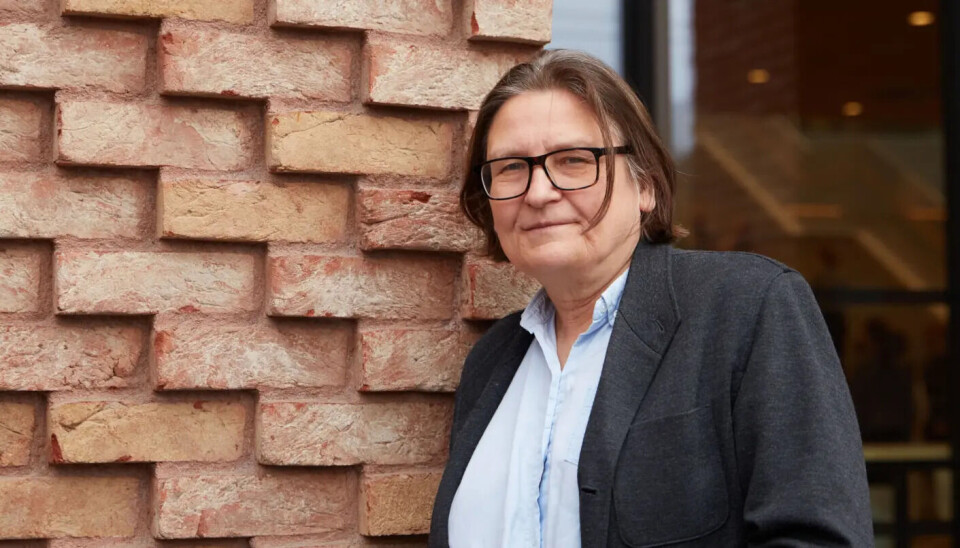
We move on to Domus Juridica and the other rectorial candidate Ragnhild Hennum.
— Why should students vote for you?
— I know the day to day of studying very well and have always been concerned that the student voice is heard, both as a dean here at the Faculty and earlier as a pro-rector for the whole UiO.
Hennum emphasises that the faculties have different needs regarding the improvement of learning environments. She describes her own Faculty of Law as characterised by a highly competitive environment, and so a partial solution might be to facilitate co-operation.
— There are nevertheless no permanent solutions. Structural measures, like the construction of new student housing and an increase in student welfare benefits are keys to allow for full-time study, she adds.
— And you’ll vouch for this, should you become the head of university?
— Yes.
Current debates
Students have to feel that there is something to gain in voting.
Many professors and students have in the recent years warned against an erosion in the level of expertise in the universities. Hennum disagrees with the claim that students are less knowledgeable but admits that the development has been towards a model where the university may come to resemble earlier education.
— Our job is to do something about it. We have to ensure that students come out with faculties of critical and independent thought.
Regarding the “Palestine question”, Hennum admits that her team is yet to discuss the demands of the student movement, among those the academic boycott of Israeli universities, but that they regardless want to condemn the breaches of international law.
— The topic is difficult, and I think the current leadership has handled it well.
As the election race kicks into gear both candidates are hoping to reach out to students.
— We can encourage students to vote, but we also have to work towards being relevant for them. They have to feel that there is something to gain in voting, Hennum concludes.
Whether the candidates manage to fan the fires of student engagement remains to be seen, as well as whether other candidates will enter the race before the election kicks off in February.
